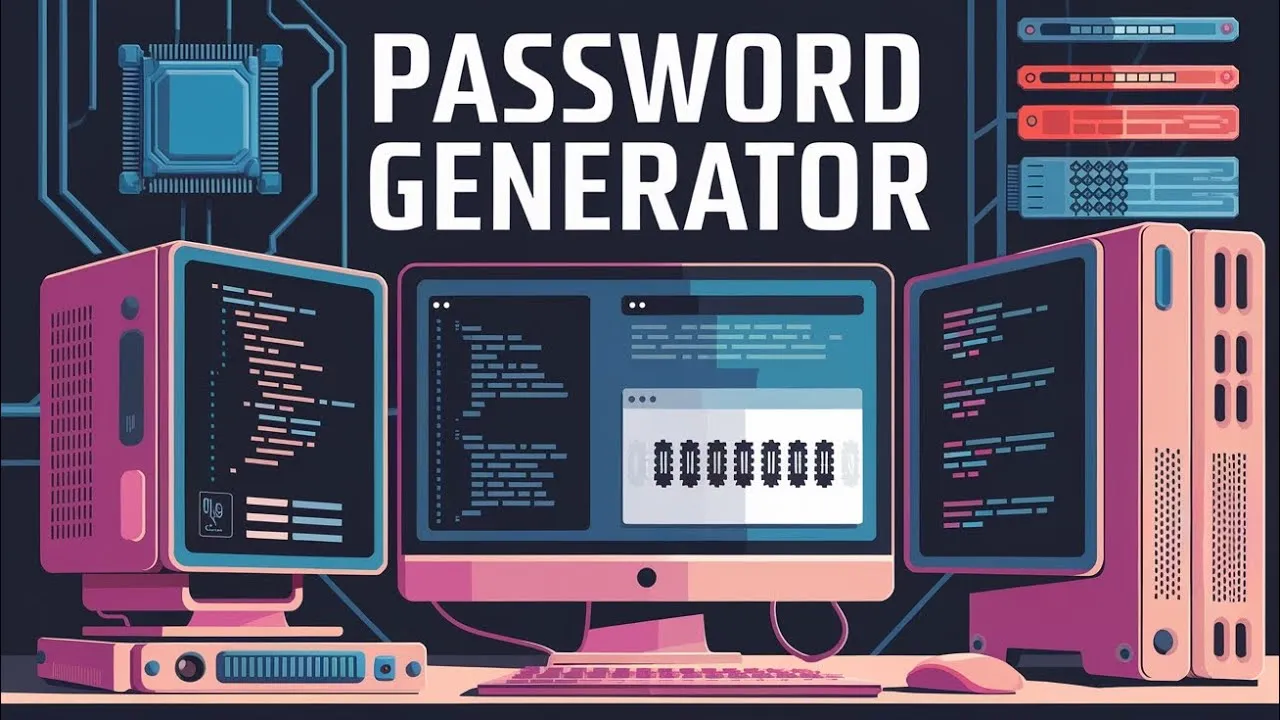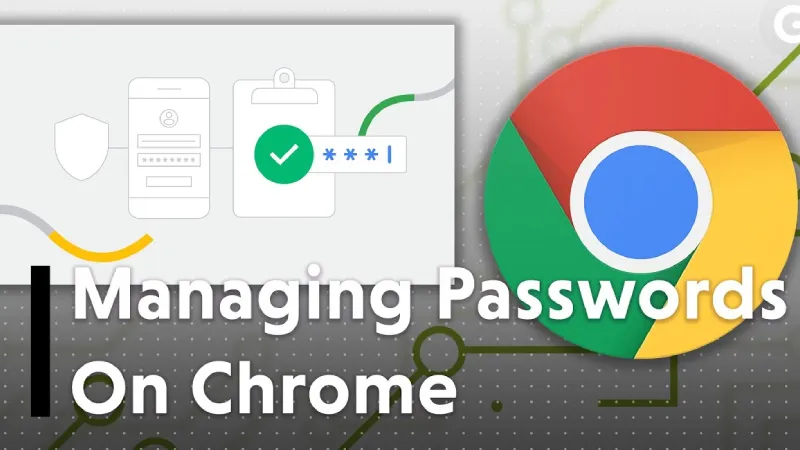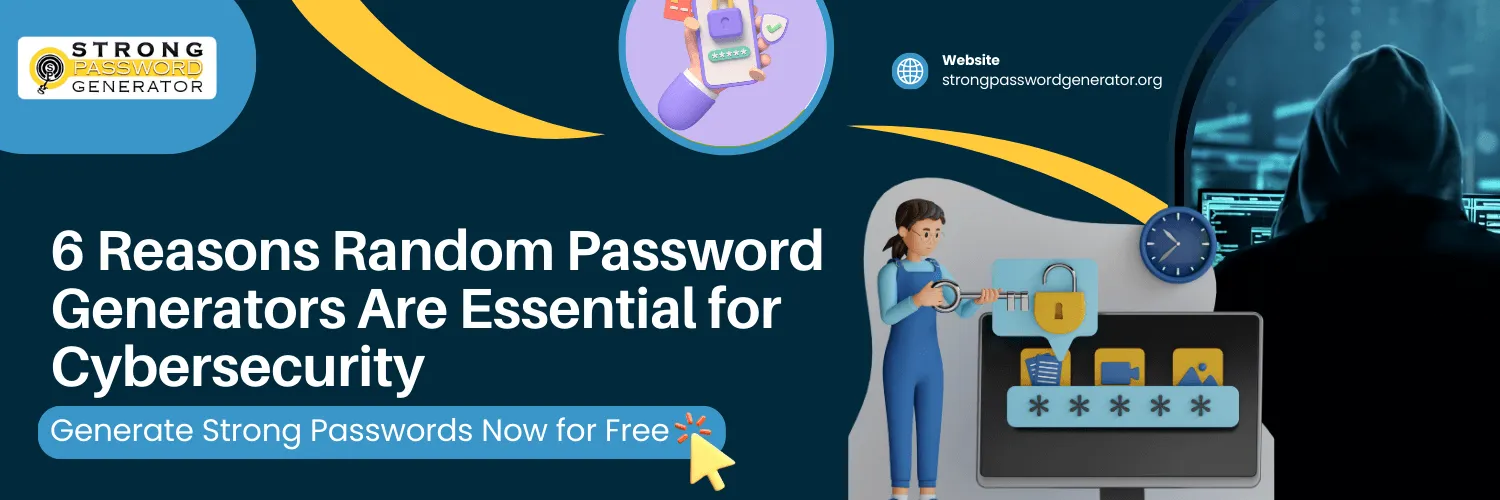
You might think that choosing a password is as simple as picking a word you like, but that approach can leave you vulnerable. Random password generators create complex, unique passwords that greatly enhance your security by making it nearly impossible for hackers to crack them.
These tools can protect you against brute force and dictionary attacks by creating complex passwords that are difficult to guess. Additionally, they enable you to customize password length and character requirements based on your needs so you don’t have to spend time crafting secure passwords manually.
As cyber threats become more sophisticated, relying on strong passwords isn’t just smart; it’s essential.
For cybersecurity, generate random and secure passwords now!
So, what exactly makes these generators an important tool in your cybersecurity toolkit, and how can you implement them effectively in your daily routine? Let’s explore the key reasons why random password generators are crucial for safeguarding your digital life.
Key Reasons Random Password Generators Are Essential for Your Cybersecurity
Random password generators are essential for maintaining strong cybersecurity practices.
Protection Against Brute Force or Dictionary Attacks
In today’s digital landscape, your online security hinges on the strength of your passwords. Random password generators create complex, lengthy passwords that combine upper and lowercase letters, numbers, and special characters.
Complexity protects against brute force and dictionary attacks, where hackers attempt to gain access by guessing passwords or using lists of commonly exploited ones. When you rely on random password generators, you greatly increase the number of potential combinations an attacker must try.
For instance, a password with 12 characters, combined with different characters, could take years, if not centuries, to crack using brute force. Unlike predictable passwords, that can be guessed with dictionary attacks, a truly random password makes it harder for cybercriminals to crack.
Avoiding Easy-to-Guess Passwords
While many users rely on easily memorable passwords, this practice greatly increases vulnerability to cyberattacks. Weak passwords like “123456” or “password” are prime targets for attackers. Such common selections make your accounts highly susceptible to unauthorized access.
A random password generator effectively eliminates this risk by creating unpredictable combinations, markedly enhancing your security posture. These generators produce passwords devoid of personal information, such as birthdays or names, which are often exploited in social engineering attacks.
By avoiding easily guessable words or patterns, you reduce the likelihood of successful attacks based on guessing. In today’s digital landscape, where data breaches are rampant, adopting a strong password strategy is not just advisable; it’s essential.
Eliminating the Hassle of Thinking Up Secure Passwords
Thinking up secure passwords can be a challenging task, especially with all the requirements from organizations like the National Institute of Standards and Technology (NIST). You might find yourself wrestling with complexity rules, length requirements, and the need to avoid easily guessable information.
This often leads to frustration and, ultimately, weaker passwords as you settle for something that meets the minimum criteria rather than ensuring robust security. Random password generators eliminate this hassle by providing you with instant, secure options that adhere to stringent security standards.
With a few clicks, you can generate a password that’s not only random but also complex enough to thwart potential attackers. By automating the process, these tools free you from the mental burden of crafting a secure password, allowing you to focus on more critical tasks.
Limiting the Risk of a Single Compromised Password
A single compromised password can trigger a domino effect, exposing multiple accounts and sensitive information. When you reuse passwords across different platforms, one breach can lead to catastrophic cascading consequences.
This vulnerability emphasizes the need for unique passwords tailored to each account, which is where random password generators come into play. By utilizing a random password generator, you can effortlessly create distinct passwords that are hard to guess or crack.
In addition to implementing random password generators, integrating Privileged Access Management (PAM) practices can further safeguard your most critical accounts. PAM helps you control and monitor access to sensitive information, ensuring only authorized users can reach it.
Customization of Password Length and Character Requirements
Customizing the length and character requirements of passwords is essential for enhancing cybersecurity. Many random password generators offer you the ability to define these parameters, ensuring that your passwords adhere to both individual and organizational policies.
This customization is vital for compliance with NIST standards and aligns with specific system requirements, allowing you to maintain a robust security posture. By selecting appropriate password lengths, you can greatly increase resistance against brute-force attacks.
Longer passwords exponentially raise the complexity, making it more difficult for attackers to gain unauthorized access. Additionally, you can specify character requirements, such as including uppercase letters, numbers, and special symbols, which further enhances password strength.
Enhanced Security When Used with MFA and Password Encryption
Utilizing random password generators alongside Multifactor Authentication (MFA) greatly strengthens your cybersecurity framework. When you employ random, unique passwords, you create a formidable barrier against unauthorized access.
MFA adds a layer by requiring more than just a password to verify, so attackers can’t get in even if a password is compromised. Moreover, organizations that implement password encryption gain further protection.
Although encrypted password databases are vulnerable to breaches, stolen passwords remain useless without encryption keys. Random passwords enhance this security by ensuring that each password is distinct, making it exceedingly difficult for attackers to exploit any single breach.
Why should I use a password manager?

Many users underestimate the importance of a password manager, yet it plays an essential role in enhancing your cybersecurity. By storing and encrypting all your passwords in one secure location, a password manager greatly reduces the likelihood of password-related breaches.
By using a password manager like Google Password Manager, you can generate complex, random passwords for each account instead of juggling multiple ones. The risk of reusing passwords across various platforms can’t be overstated; it’s a common vulnerability exploited by hackers.
With a password manager, you can easily use unique passwords without the mental strain of memorizing them. This allows you to fortify your security posture, making it harder for attackers to gain access to your sensitive information.
What are the worst passwords to avoid?
Even with a password manager’s assistance, recognize the types of worst passwords that can compromise your security. The first group to avoid consists of common sequences such as “123456,” “111111,” or “abcdef.” These passwords are predictable and easily guessed, making them prime targets for cybercriminals.
Next, steer clear of using personal information. Passwords based on your name, birthday, or phone number are often easily obtainable through social media or public records, which greatly increases your vulnerability. Attackers frequently leverage this information in their attempts to breach accounts.
Lastly, refrain from popular words or phrases like “password,” “qwerty,” or “letmein.” Such choices are not only weak but also widely recognized by hackers, who employ dictionary attacks to exploit them.
What are the benefits of an encrypted password?
Encrypting passwords considerably enhances security by rendering them unreadable in the event of a database breach. This additional layer of protection guarantees that even if hackers gain access to your database, they can’t easily exploit your users’ credentials.
Encrypted passwords are transformed into a scrambled format, making them nearly impossible to decipher without the correct decryption key. Moreover, encryption bolsters data integrity. Only authorized systems can decrypt these passwords, meaning that even if data is intercepted, it remains secure.
What is a good password strategy for foolproof data security?
A solid password strategy is crucial for maintaining foolproof data security. Start by using a password manager to generate and store unique, complex passwords for each of your accounts. This prevents the risk associated with password reuse and simplifies the process of managing multiple accounts.
Combine these strong passwords with Multifactor Authentication (MFA) whenever possible; adding this layer of protection reduces the chances of unauthorized access. Regularly updating critical account passwords is also essential. Set reminders to change passwords every few months or whenever you suspect a potential breach.
Avoid using common phrases or easily guessable information, as attackers often exploit these weaknesses. Moreover, educate yourself about phishing attempts and security best practices. Always verify the legitimacy of a site before entering your password, and be cautious of links in emails.
Unleash Your Digital Excalibur: Power of Random Password Generators
In a digital landscape rife with threats, relying on random password generators is akin to wielding Excalibur in the battle against cyber adversaries. By creating unique, complex passwords, you not only safeguard your data but also fortify your defenses against increasingly sophisticated attacks.
Embracing a password manager amplifies this protection, ensuring you never fall prey to the temptation of weak passwords. Ultimately, adopting these strategies empowers you to navigate the cyber domain with confidence and resilience.

